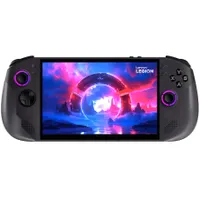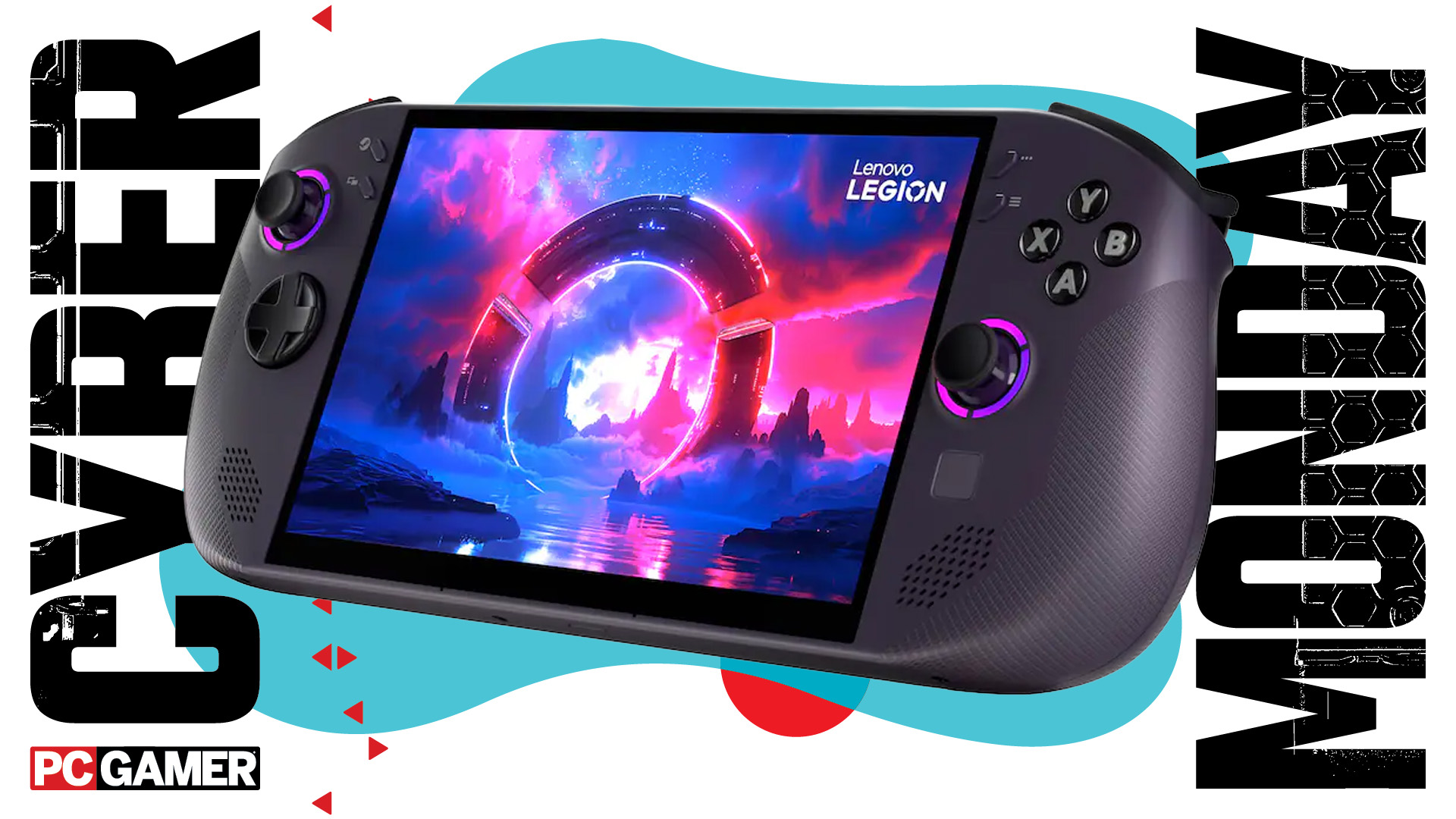
Keep up to date with the most important stories and the best deals, as picked by the PC Gamer team.
You are now subscribed
Your newsletter sign-up was successful
Want to add more newsletters?

Every Friday
GamesRadar+
Your weekly update on everything you could ever want to know about the games you already love, games we know you're going to love in the near future, and tales from the communities that surround them.

Every Thursday
GTA 6 O'clock
Our special GTA 6 newsletter, with breaking news, insider info, and rumor analysis from the award-winning GTA 6 O'clock experts.

Every Friday
Knowledge
From the creators of Edge: A weekly videogame industry newsletter with analysis from expert writers, guidance from professionals, and insight into what's on the horizon.

Every Thursday
The Setup
Hardware nerds unite, sign up to our free tech newsletter for a weekly digest of the hottest new tech, the latest gadgets on the test bench, and much more.

Every Wednesday
Switch 2 Spotlight
Sign up to our new Switch 2 newsletter, where we bring you the latest talking points on Nintendo's new console each week, bring you up to date on the news, and recommend what games to play.

Every Saturday
The Watchlist
Subscribe for a weekly digest of the movie and TV news that matters, direct to your inbox. From first-look trailers, interviews, reviews and explainers, we've got you covered.

Once a month
SFX
Get sneak previews, exclusive competitions and details of special events each month!
The chip in this handheld is a little newer than the Steam Deck's and a little more powerful, too. It's not quite on par with the Z2 Extreme or even the older Z1 Extreme chip—you can thank AMD's marketing department for that one—but with this sorta discount means it's not too expensive versus a higher capacity Steam Deck. The 120 Hz at 1080p might be a push but you can absolutely get some good gaming done on the go here, and with SteamOS to lighten the load.
Key specs: Ryzen Z2 Go | 8-inch screen | 16 GB RAM | 512 GB SSD
This kind of pricing, $450 at Best Buy with a sizeable $200 discount for Cyber Monday, is exactly what I wanted out of the Ryzen Z2 Go version of the Legion Go S when it launched. When I reviewed it back in March—the version with Windows on rather than SteamOS—I concluded that it's a lovely handheld but costs too much for what you're getting. And I looked eagerly towards the launch of the SteamOS version.
Then I got to try out SteamOS vs Windows on the handheld, and switching over was even better than I hoped: significantly better performance in some games plus all the benefits of the SteamOS such as better sleep/wake and a more handheld-tailored UI. What was mediocre performance for too high of a price upon a Windows launch made more sense on SteamOS, and now at $450 it makes a heck of a lot of sense.
- We're curating all the best Cyber Monday PC gaming deals over here
At this price, the Legion Go S is competing more with the Steam Deck than other high-end handhelds, and here it comes out on top. For starters, the Z2 Go GPU is more powerful than the Steam Deck's Van Gogh one, and now the operating system field is level, the Lenovo handheld will plough on ahead.
More than this, though, with the Legion Go S, you have a design the comfort of which cannot be understated. I'm saying this as someone who regularly uses the Legion Go S and is still incredibly impressed by just how comfy it is—it's the more powerful Z1 Extreme version that I'm using, admittedly, but it shares the same design. The only competitor on this front, in my eyes, is the new Asus ROG Xbox Ally X, but that's way more expensive and has Windows.
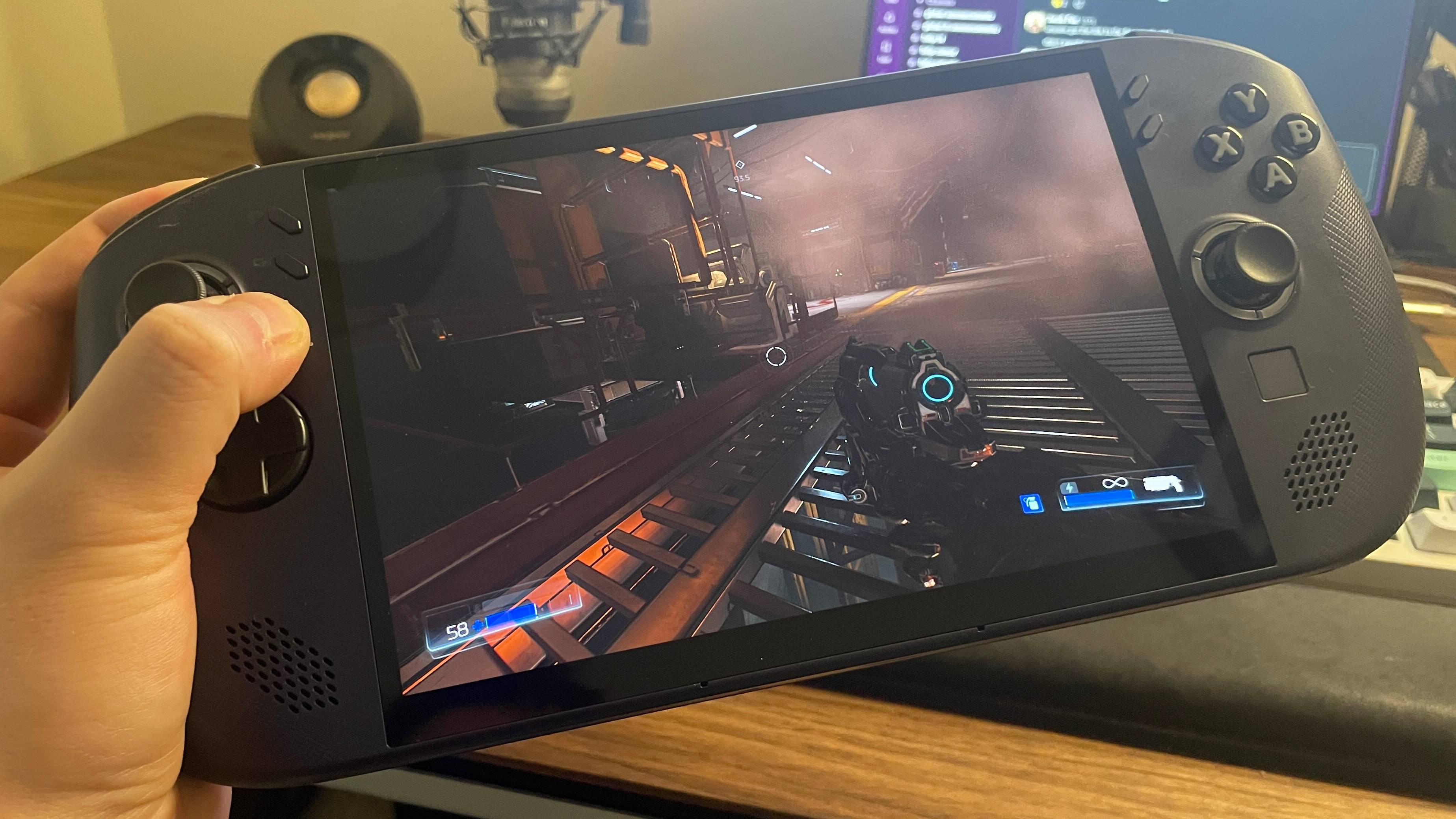
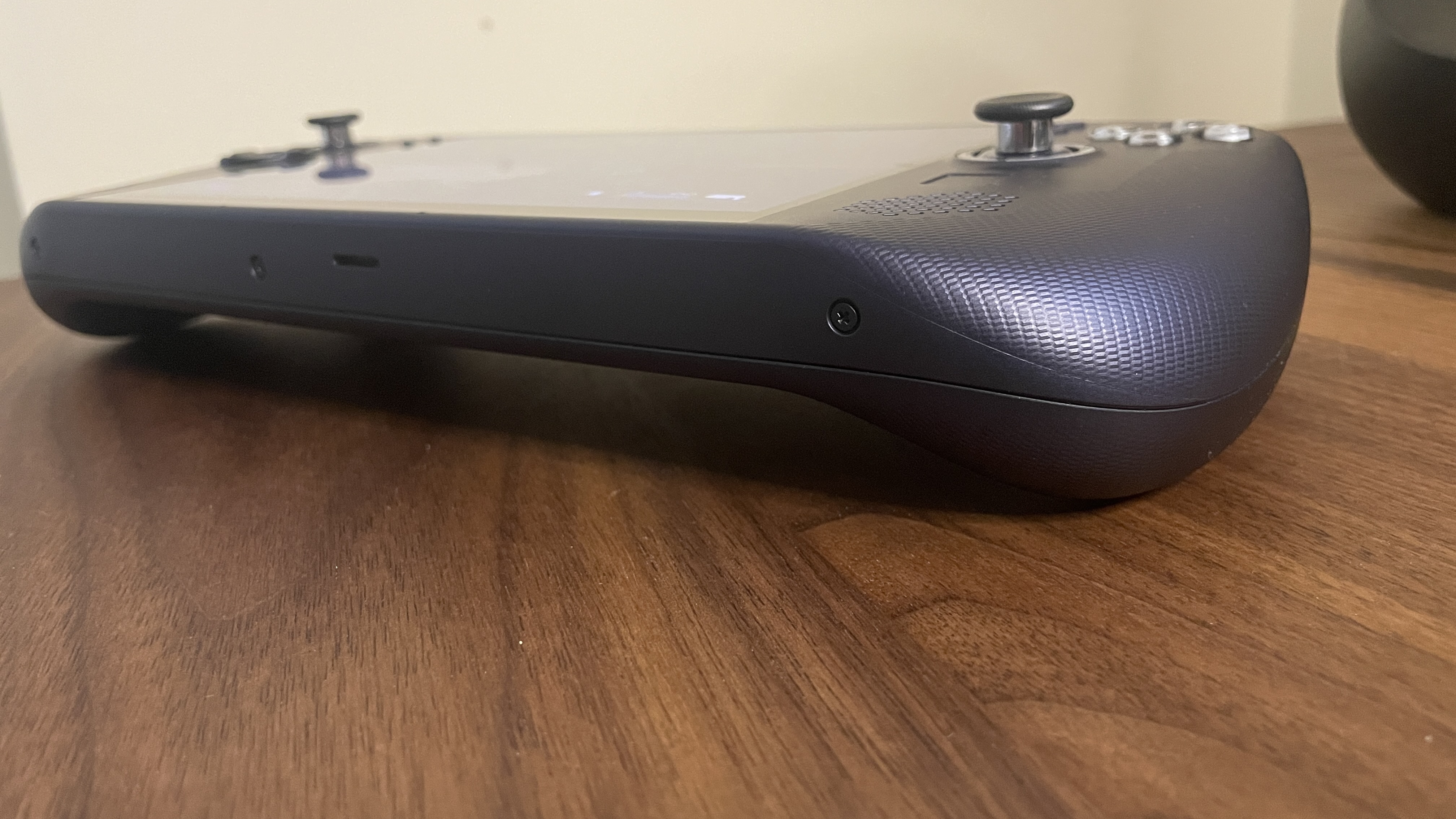
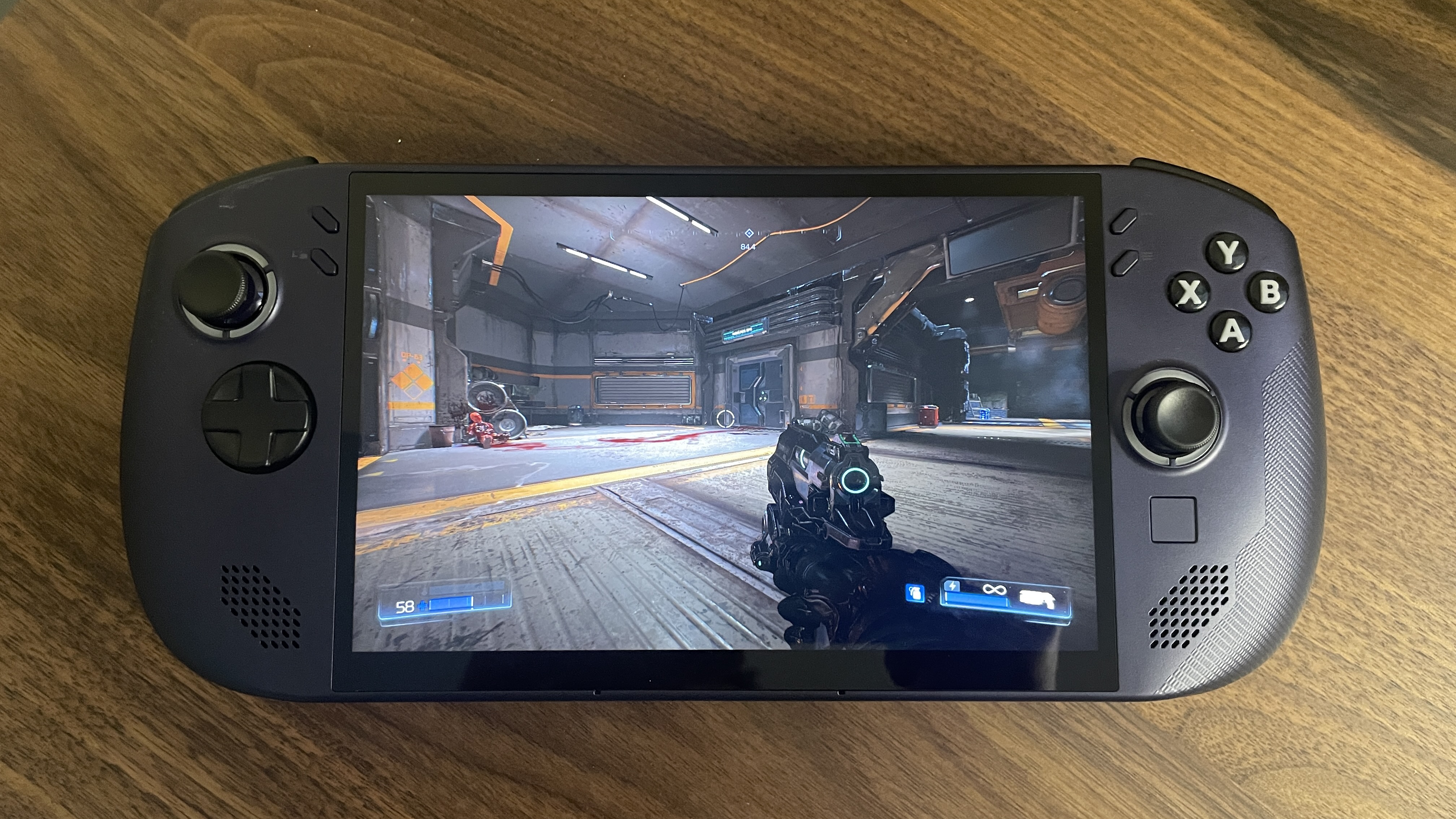
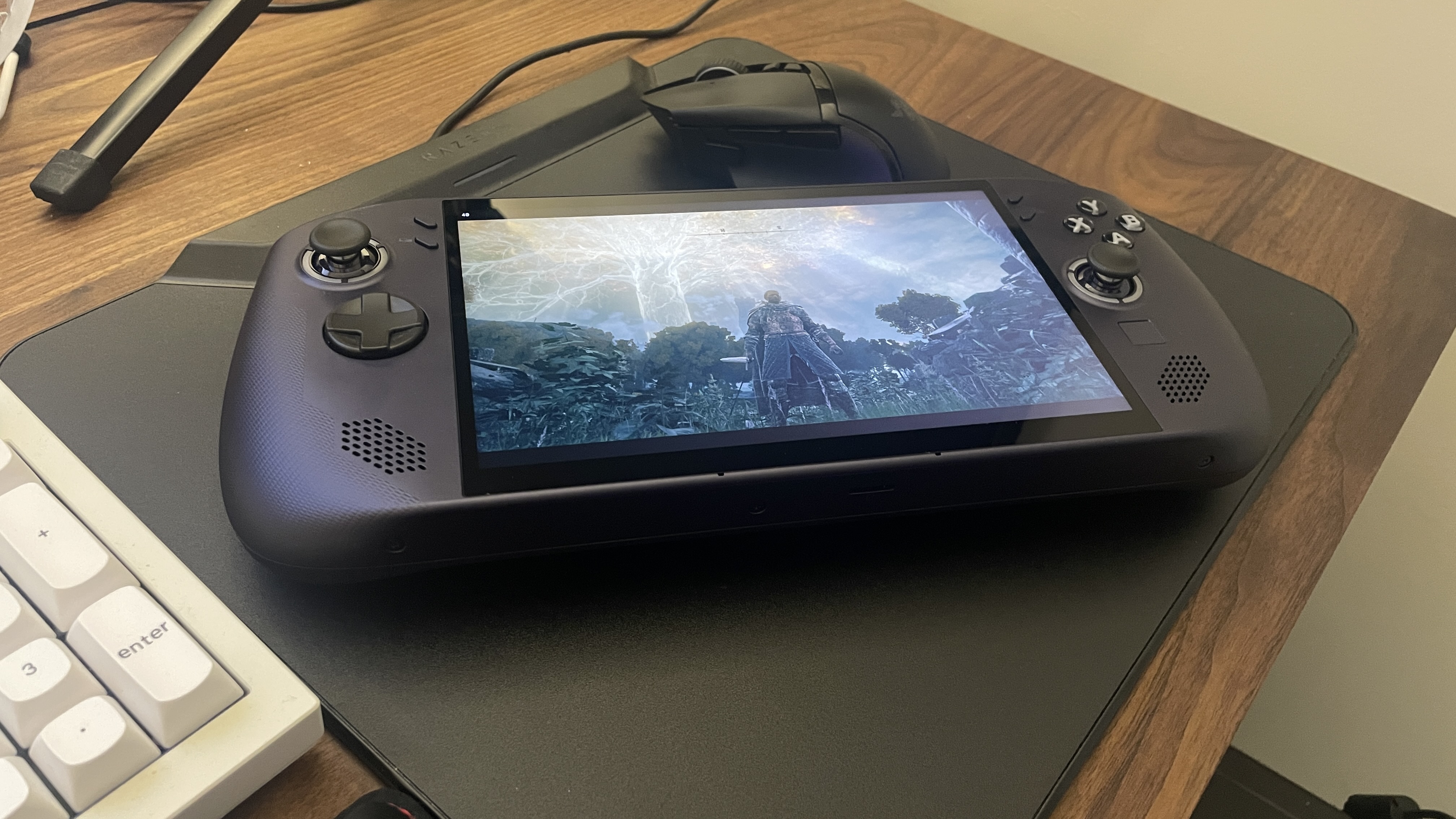
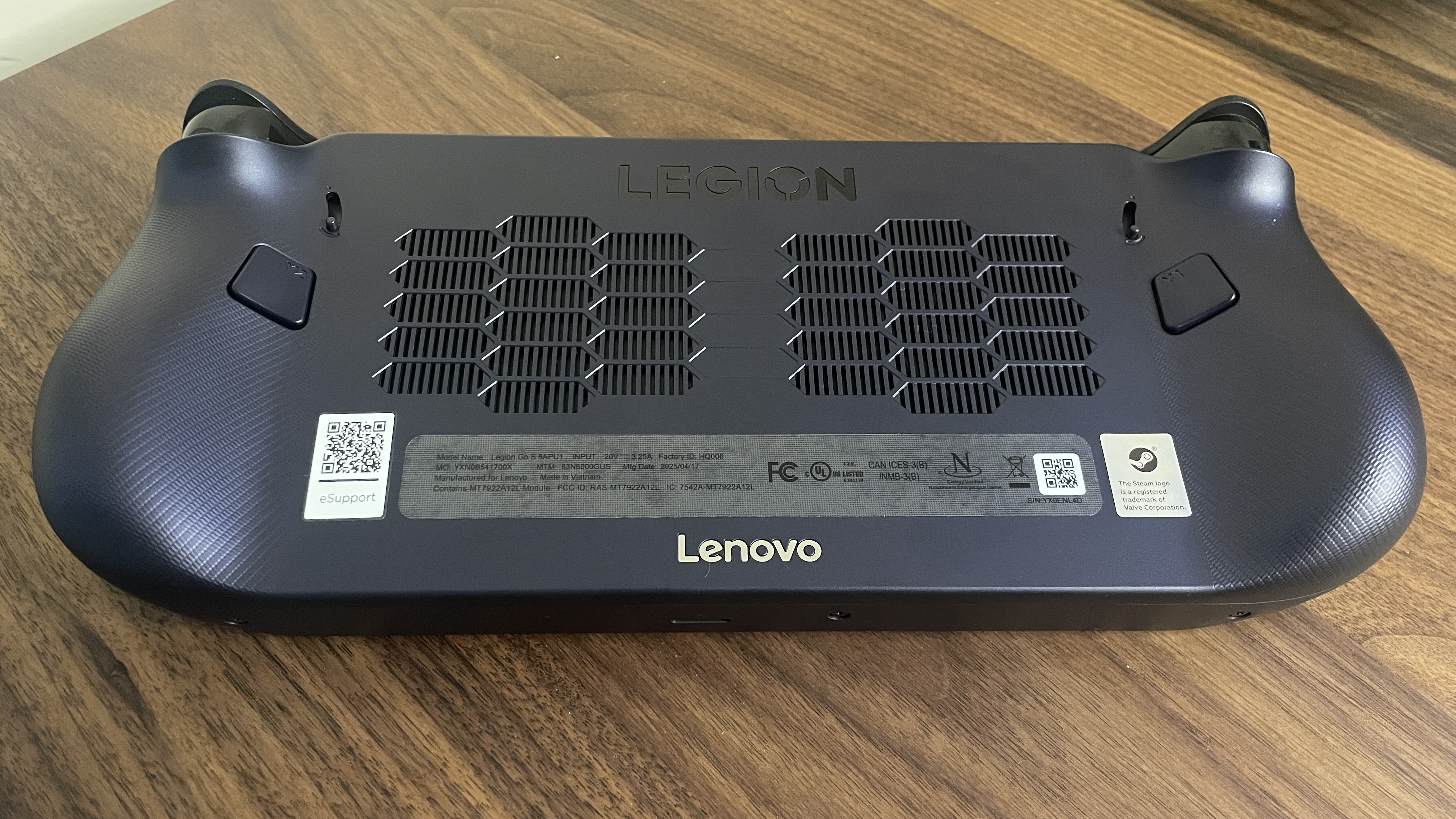
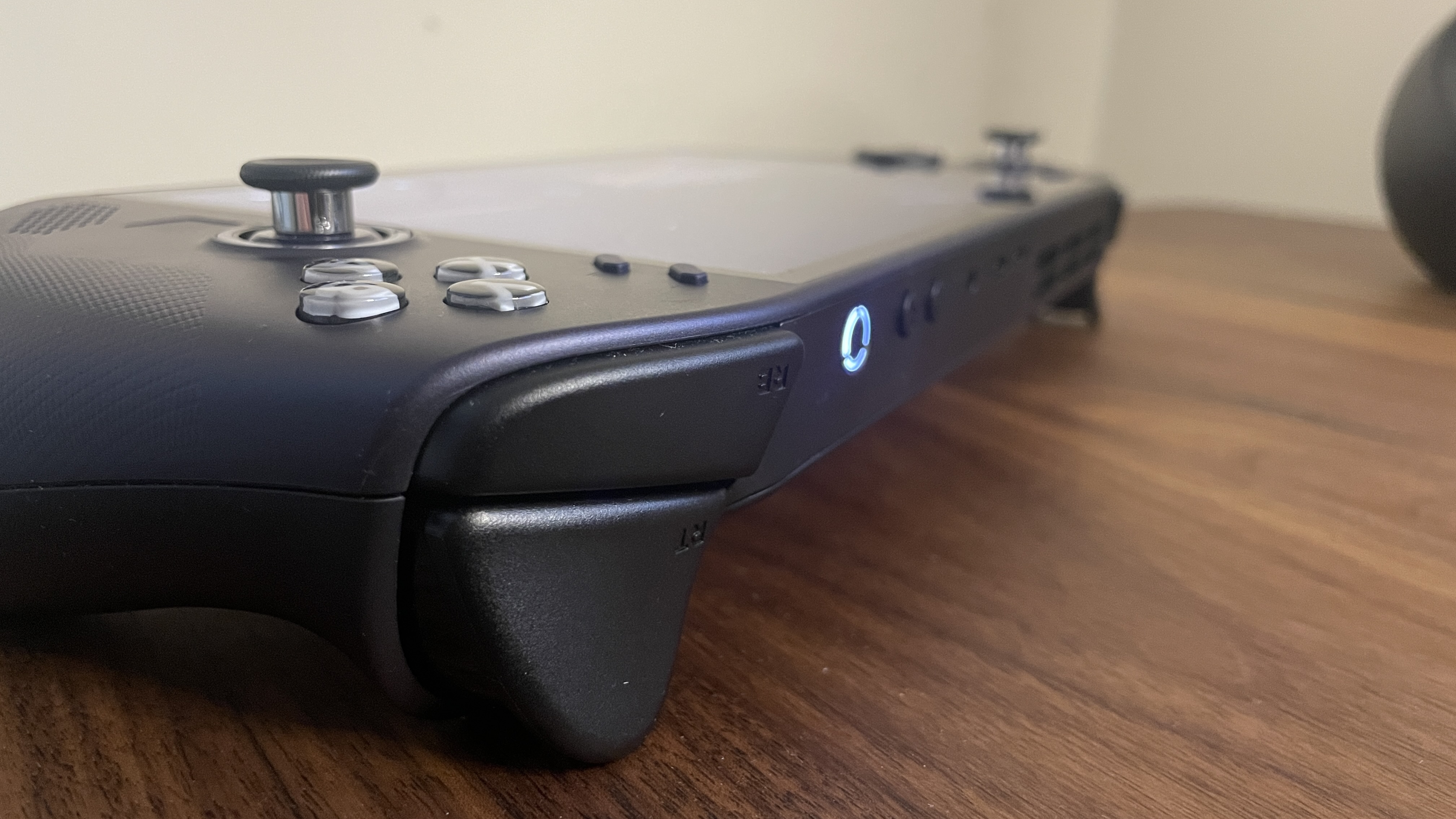
With the Legion Go S, you're getting grips that somehow fit the hand wonderfully without visually sticking out at all. Everything feels premium, from the sticks to the triggers—which can either depress normally or lock in to act more like a mouse click—to the d-pad, which has a lovely thunky sound and feel to it.
In the Z2 Go version, here, and especially with just 16 GB of memory—which will have to be shared with the GPU, remember—you shouldn't expect the absolute best handheld performance on offer today. But SteamOS really does work wonders cutting background processes back to let that processor shine in whatever game you're playing. And while there isn't tons of storage on this one, it supports 2280 form factor SSDs, so upgrading should be no issue.
With upscaling on, you can expect smooth frame rates at 1080p even in quite demanding games such as Black Myth Wukong, provided you lower your settings down to medium. And, of course, in much less demanding games, you should be able to make good use of that 120 Hz refresh rate on the large screen.
If I had a budget of $500 or less, this is without a doubt the handheld I'd choose. It's not all about raw performance, because while there's enough of that here for some smooth gameplay in most handheld-friendly games, the extra comfort, plus the large screen and refresh rate, seals the deal.
👉 Here are Best Buy's handheld gaming PC deals 👈
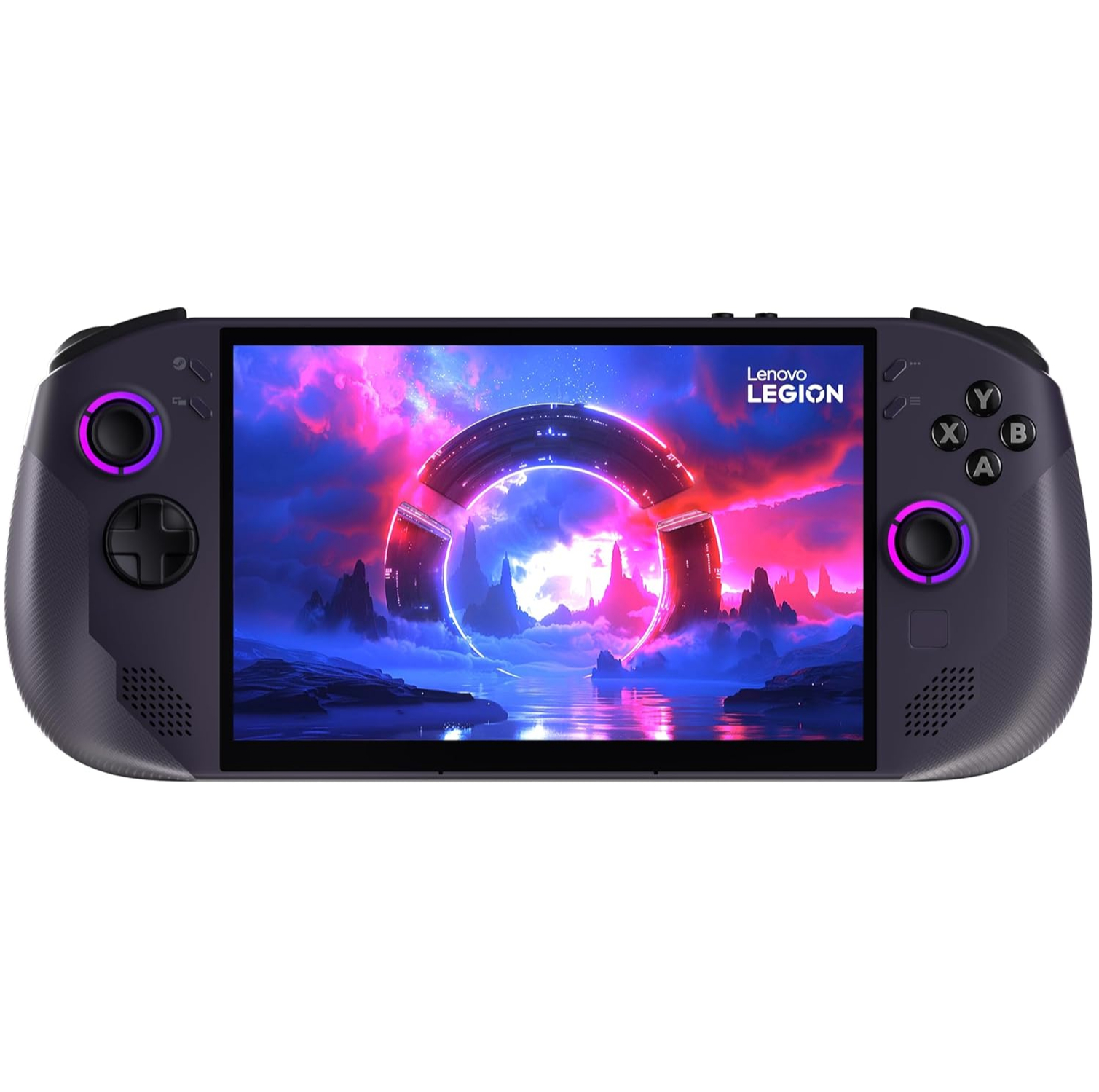
1. Best overall:
Lenovo Legion Go S SteamOS
2. Best budget:
Steam Deck
3. Best Windows:
Asus ROG Xbox Ally X
4. Best big screen:
Lenovo Legion Go
5. Best compact:
Ayaneo Flip DS
Keep up to date with the most important stories and the best deals, as picked by the PC Gamer team.

Jacob got his hands on a gaming PC for the first time when he was about 12 years old. He swiftly realised the local PC repair store had ripped him off with his build and vowed never to let another soul build his rig again. With this vow, Jacob the hardware junkie was born. Since then, Jacob's led a double-life as part-hardware geek, part-philosophy nerd, first working as a Hardware Writer for PCGamesN in 2020, then working towards a PhD in Philosophy for a few years while freelancing on the side for sites such as TechRadar, Pocket-lint, and yours truly, PC Gamer. Eventually, he gave up the ruthless mercenary life to join the world's #1 PC Gaming site full-time. It's definitely not an ego thing, he assures us.
You must confirm your public display name before commenting
Please logout and then login again, you will then be prompted to enter your display name.
